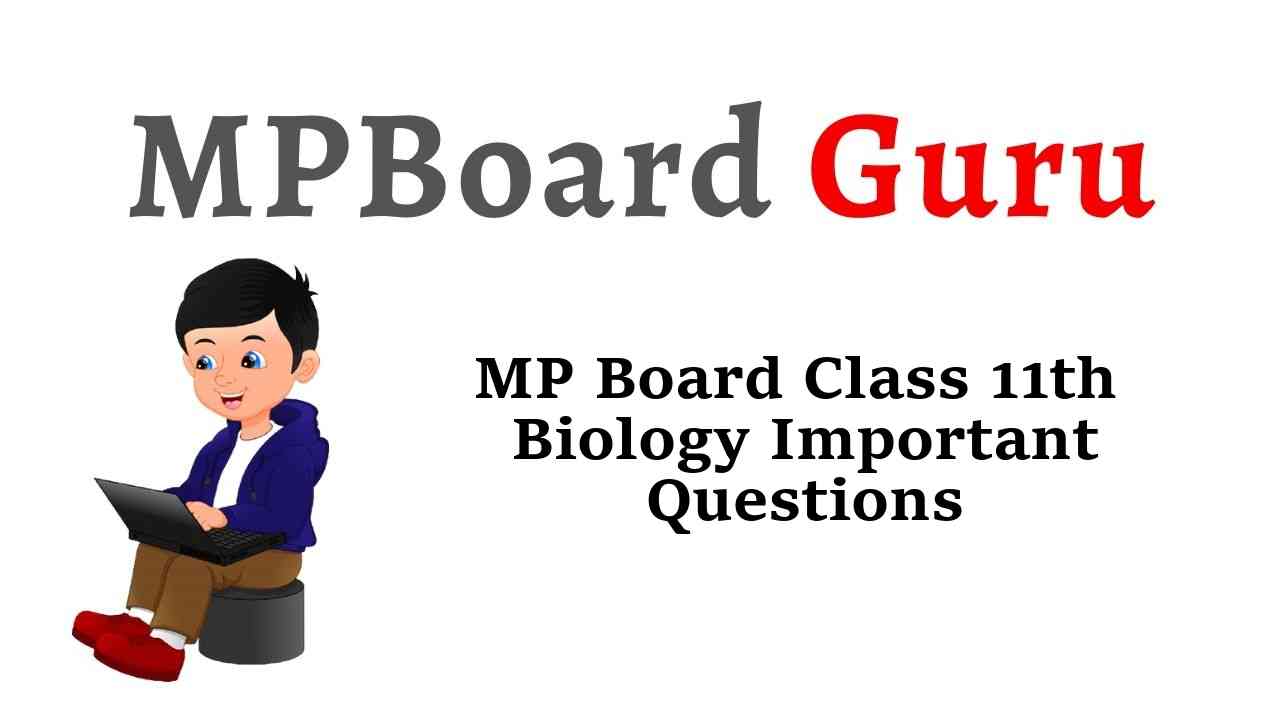MP Board Class 11th Biology Important Questions brings you the latest questions and solutions in accordance with the latest NCERT Madhya Pradesh Syllabus guidelines. Students can clear all their doubts with respect to each chapter by practicing these important chapter questions and detailed explanations which are provided by our experts in order to help you better. These questions will help students prepare well for the exams due to time constraints.
MP Board Class 11th Biology Important Questions in English Medium
- Chapter 1 The Living World Important Questions
- Chapter 2 Biological Classification Important Questions
- Chapter 3 Plant Kingdom Important Questions
- Chapter 4 Animal Kingdom Important Questions
- Chapter 5 Morphology of Flowering Plants Important Questions
- Chapter 6 Anatomy of Flowering Plants Important Questions
- Chapter 7 Structural Organisation in Animals Important Questions
- Chapter 8 Cell: The Unit of Life Important Questions
- Chapter 9 Biomolecules Important Questions
- Chapter 10 Cell Cycle and Cell Division Important Questions
- Chapter 11 Transport in Plants Important Questions
- Chapter 12 Mineral Nutrition Important Questions
- Chapter 13 Photosynthesis in Higher Plants Important Questions
- Chapter 14 Respiration in Plants Important Questions
- Chapter 15 Plant Growth and Development Important Questions
- Chapter 16 Digestion and Absorption Important Questions
- Chapter 17 Breathing and Exchange of Gases Important Questions
- Chapter 18 Body Fluids and Circulation Important Questions
- Chapter 19 Excretory Products and their Elimination Important Questions
- Chapter 20 Locomotion and Movement Important Questions
- Chapter 21 Neural Control and Coordination Important Questions
- Chapter 22 Chemical Coordination and Integration Important Questions
Thus, MP Board Class 11th Biology Important Questions with Answers would help them to prepare for board examinations. Students can practice on our MP Board Class 11th Biology Chapter-Wise Important Questions with Answers which will enable them in developing conceptual knowledge.
